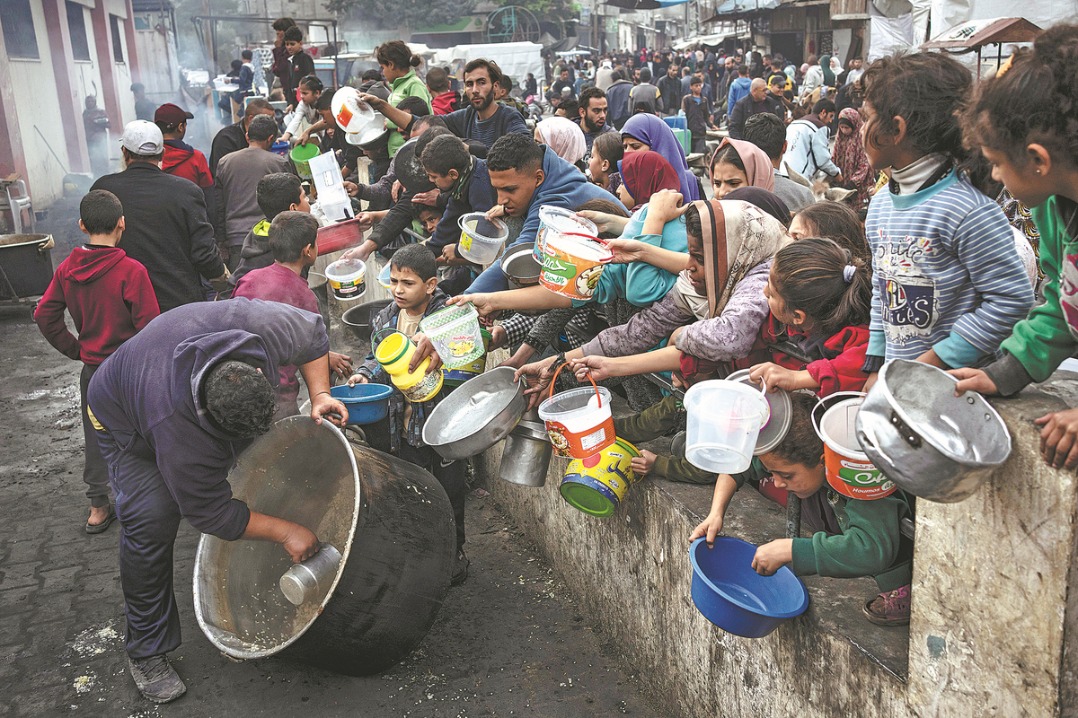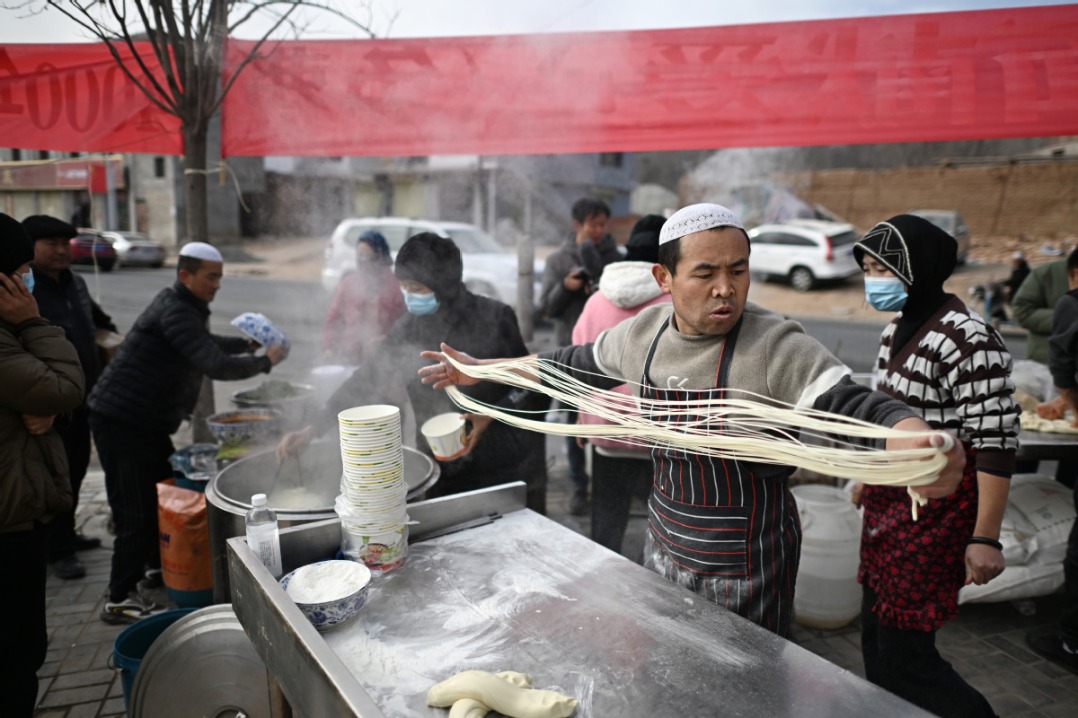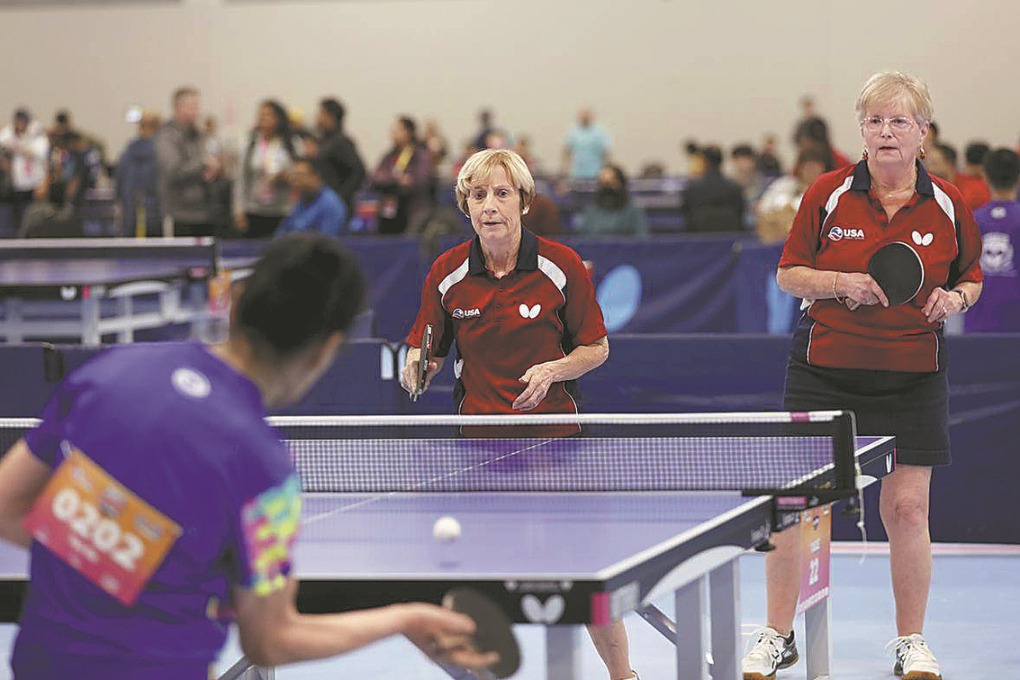Asia-Pacific lags behind in development goals
By YANG WANLI in Bangkok and PRIME SARMIENTO in Hong Kong | China Daily | Updated: 2023-03-24 09:34
UN official calls for reflection on SDG progress at the 'opportune moment'
Many economies in the Asia-Pacific will be missing the 2030 target year for achieving UN Sustainable Development Goals, or SDGs, at the current pace, a UN agency report said on Wednesday.
Produced by the United Nations Economic and Social Commission for Asia and the Pacific, or ESCAP, the 2023 Asia-Pacific SDG Progress Report finds that overall progress in the region is slow on 17 sustainable development goals and 169 targets.
"Based on current trends, the region will still take another 42 years to reach the goal post" although only seven years are left, it said.
"This is an opportune moment to reflect on progress in the Asia-Pacific region toward achieving the SDGs, as well as being reminded of the significant work that remains to be done," said Armida Salsiah Alisjahbana, under-secretary-general and executive secretary of ESCAP.
"The region should have made 50 percent of the progress needed to achieve the goals, yet the overall progress has reached only 14.4 percent, which could result in substantial delays in accomplishing our 2030 ambitions," she said.
Of the 17 goals being investigated, progress toward climate action is slipping away the most. The region is both a victim of the impact of climate change and a perpetrator of climate change, with a responsibility to reduce greenhouse gas emissions.
The report also indicated that the region is regressing on the increase in deaths and missing persons attributed to disasters.
While the full impact of the COVID-19 pandemic has yet to be quantified, she said data on a limited number of indicators are beginning to reveal impacts on people, planet and prosperity.
"Climate change continues to regress and must be given priority to reverse negative trends. This might be a crucial factor that influences the region's pace toward the SDG target and needs to be improved by joining hands with all countries," she added.
Harrowing dangers
"Without action, this region is projected to miss 90 percent of its 118 targets by 2030, and this is unacceptable," said Renato Redentor Constantino, a climate policy consultant based in Manila, Philippines, noting the report's conclusions affirm the Intergovernmental Panel on Climate Change's latest synthesis report, highlighting the harrowing dangers and immense opportunities facing Asia and the Pacific.
A huge factor behind this is the continued refusal of policymakers to see how intrinsic the links are between the need to establish resilience and sustainable development and the transition to a low-carbon economy, Constantino said. "When will so-called advanced nations finally take responsibility and act like adults?"
To confront the climate emergency, and to truly realize the region's SDGs, world leaders must stop grousing and do everything they can everywhere, all at once. "We expect far more drastic decarbonization action from big emitters as well as dramatic increases in finance from wealthy economies," Constantino said.
Fermin Adriano, economist and former Philippine agriculture undersecretary, said countries that fall behind in attaining SDGs need to focus on farm productivity to increase food supply and lower prices.
"I don't see the Philippines achieving 'Zero Hunger' in 2030. In fact, despite sustained economic growth during (the previous administrations), the levels of malnutrition, stunting and hunger only incrementally declined compared with the high economic growth rate registered," Adriano said.
Although data availability on SDGs has doubled since 2017, data remain insufficient for 51 out of 169 targets, according to Rachael Beaven, director of the statistics division under the ESCAP.
"Governments must renew their commitments to producing relevant, timely, granular, high-quality information to monitor and review the march toward the Sustainable Development Goals," said Beaven.
Despite the slow pace of progress in the region overall, there are areas where some countries have made faster progress and remarkable achievements, said the report.
Contact the writers at yangwanli@chinadaily.com.cn.





















